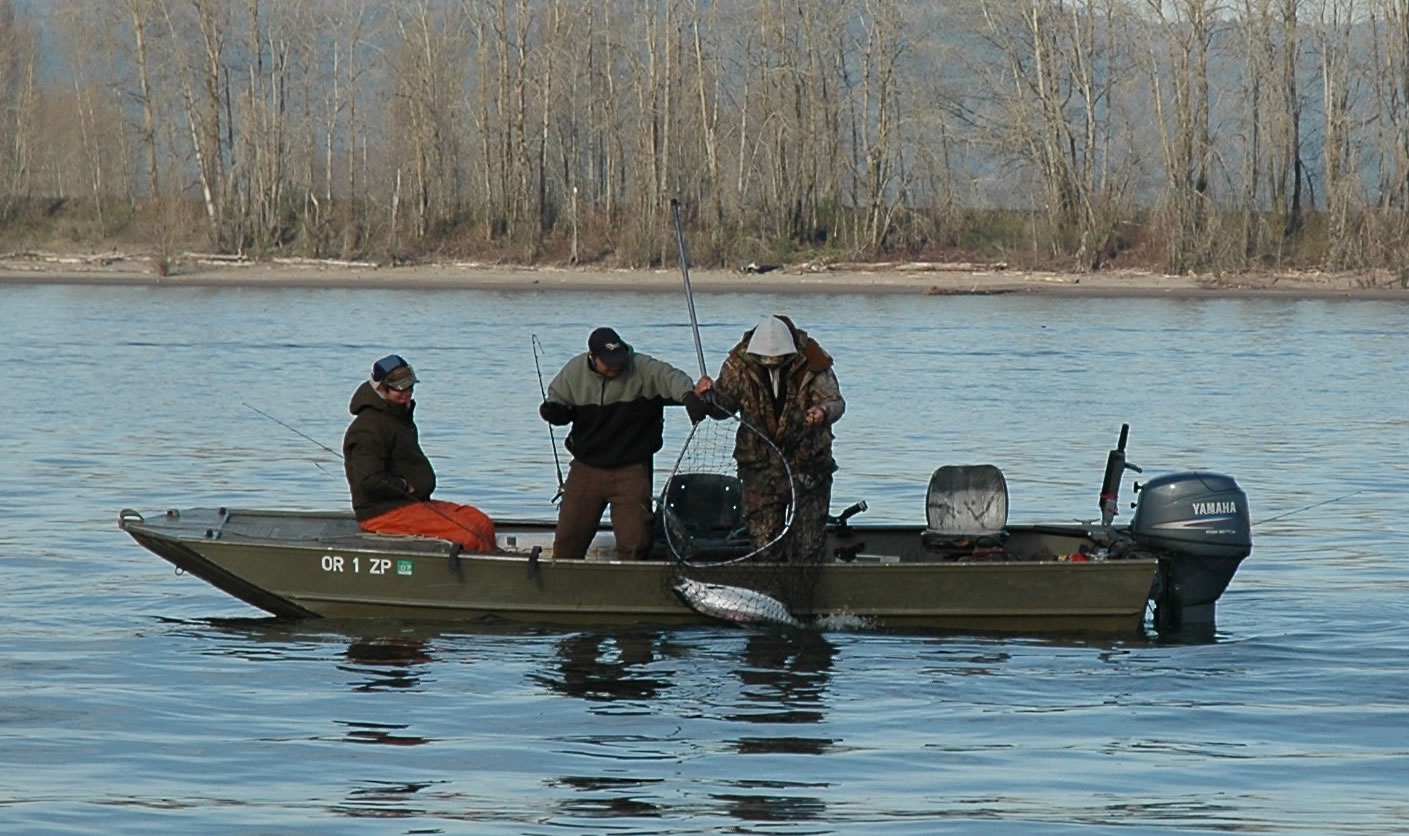There’s been a doldrums in the past couple of years in the long-standing struggle between sport and commercial fishermen regarding salmon management in the Columbia River.
That’s ending now.
The breeze stirred in September when commercial fishing representatives complained about the bi-state Columbia River reforms before the Oregon Fish and Wildlife Commission in Seaside. It turned blustery Friday when sport-fishing advocates responded before the Oregon commission in Portland.
And, no doubt, there will be some more wind blowing on the topic when the Washington Fish and Wildlife Commission meets Jan. 22 and 23 at The Heathman Lodge, 7801 N.E. Greenwood Drive.
In 2012, Washington and Oregon adopted the most sweeping reforms of lower Columbia River sport and commercial fishing policies since the 1930s.
Jumpstarted by then-Oregon Gov. John Kitzhaber, the changes allocate more chinook salmon to sportsmen in the main Columbia and restrict gillnetting to off-channel sites like Youngs Bay near Astoria.
Those off-channel spots are being stocked with many more chinook and coho and additional off-channel locations are being researched.
Commercial fishing that remains in the main Columbia is to be done with live-capture methods — such as purse seines and beach seines — designed to harvest hatchery stocks and release wild fish.
The reforms are complicated and uncertain. The commercials have not embraced the expensive shift to seine gear and long-term mortality rates of fish released from test seines have not been as low as hoped.
Sportsmen generally consider the reforms a victory. Columbia River gillnetters view them as a defeat.
The reforms were enacted for a 10-year period of 2013 through 2023, with 2013 through 2016 deemed a four-year “transition period,’’ which contained a series of progressive steps to implement the policy.
On Friday, Steve Fick, an Astoria commercial fish processor, told the Oregon commission the economic promises made to the commercials are not being realized and an independent economist needs to be hired.
Following Fick, four sport-fishing group leaders each told the Oregon commission the reforms are working.
“Change is hard,’’ said Jim Martin, retired chief of fisheries for the Oregon Department of Fish and Wildlife and conservation director for Pure Fishing, a group of large tackle manufacturers. “The vast majority of people think this is a better strategy for having viable commercial and recreational fisheries.’’
Sport-fishing guides offering Columbia River trips now can compete with Alaska and Canada fisheries for customers, he added.
“We have the quality of fishing in the Columbia River that rivals Alaska fishing, that rivals big-river fishing in British Columbia,’’ Martin said.
He also called for an outside economist to “sort of the fog from the facts.’’
Grant Putnam of the Northwest Guides and Anglers said his industry is helping Oregon realize its goal of shifting wealth from urban to rural areas.
The more than 150,000 spring chinook fishing trips and more than 108,000 Buoy 10 fishing trips produced about $15 million in economic value, Putnam said.
“Most of this economic value flows through lower river communities like Astoria, Hammond and Ilwaco in the form of full hotels, restaurants, bait and tackle locations and tourist activities,’’ he said.
Bob Rees of the Association of Northwest Steelheaders said it was money from Oregon’s Columbia River sport-fishing endorsement fee that helped pay to raise more fish for the commercials in off-channel areas, along with related monitoring and research.
“The (commercial) claims of economic harm are not supported by the facts,’’ Rees said.
Washington’s commission tentatively is scheduled to get a review of the Columbia River reform policy in January. Oregon’s update is planned for February or March.
Allen Thomas covers hunting, fishing, hiking, skiing and other outdoor topics for The Columbian. He can be reached at al.thomas@columbian.com or by calling 360-735-4555. He can be followed on Twitter at @col_outdoors.




